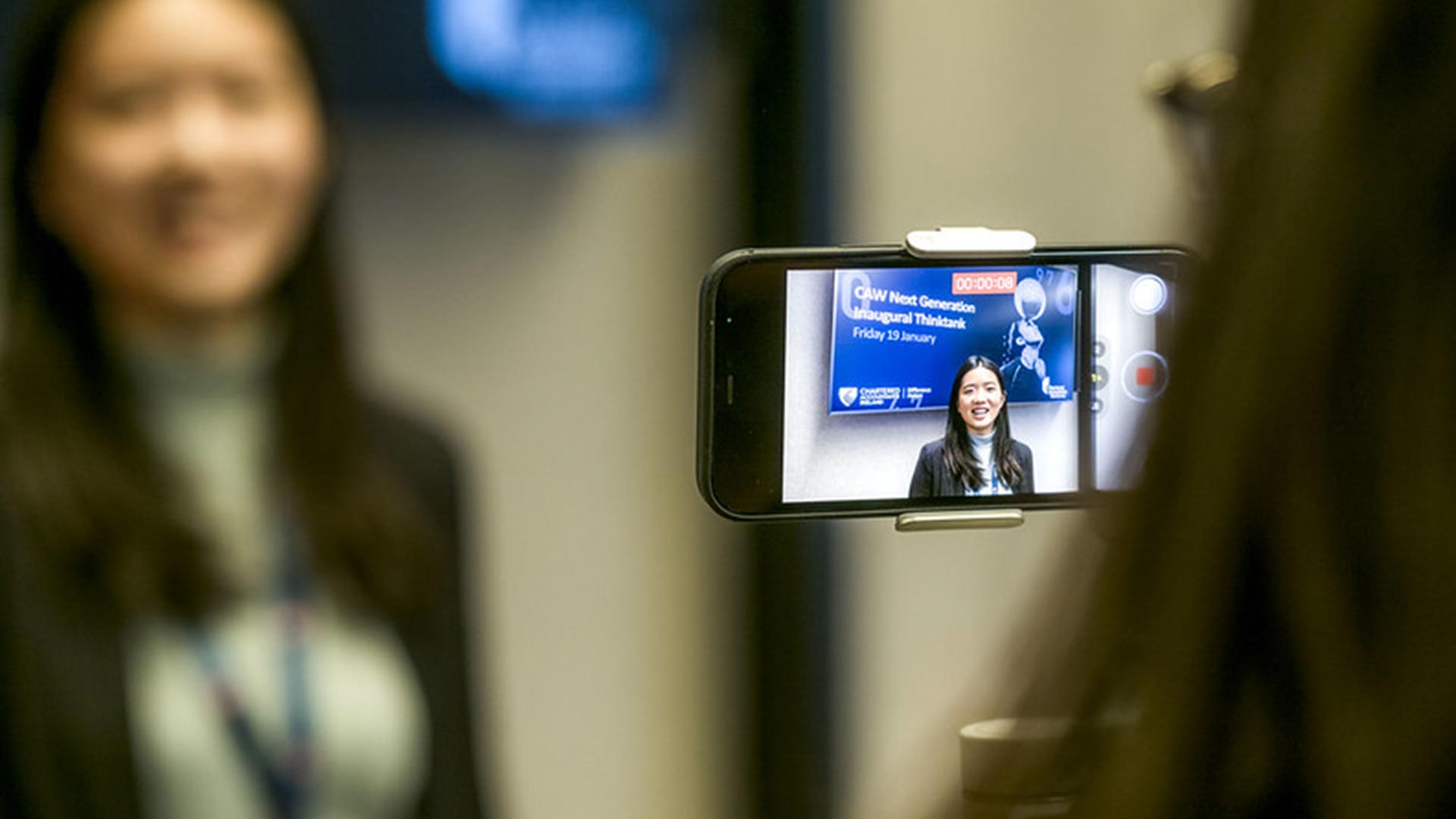Trusted professionals
That confidence in the profession’s standing stems from the high levels of trust that business leaders’ have in Chartered Accountants. The research from Edelman Data and Intelligence (DXI), which was revealed on the webinar, showed that levels of trust increased by three percentage points from 75% in 2019 to 78% now.
Decision makers consider Chartered Accountants as among the most trusted professions, catching up to doctors, engineers, nurses and teachers, and ahead of the legal profession and governments. Among finance professionals, Chartered Accountants are the most trusted compared to bankers, financial advisors, economists and insurance brokers.
Saving livelihoods
“Throughout the pandemic, the role of Chartered Accountants has been to talk to their businesses. They didn’t save lives, but they saved livelihoods,” said Michael Izza, Chairman of Chartered Accountants Worldwide.
Carolyn Colley, Non-Executive Director at CA ANZ, added that the perception of accountants improved because the profession had “stepped up”. She said: “We have looked to the accountants to look after the businesses in the same way the medical profession was stepping up to look after our wellbeing. That required a lot of handholding, analysis, understanding of all the government support and being there for the business as they navigated through the pandemic.”
The Financial Times chief UK business correspondent Daniel Thomas, who moderated the webinar, said the findings were “genuinely good news for the profession after a very challenging but also rewarding and productive last 18 months”.
Edelman DXI surveyed 1,450 decision makers across England, Scotland, Wales, Northern Ireland, the Republic of Ireland, South Africa, Australia, and New Zealand. It has tracked these attitudes since 2019 but this marks the first time the results have been made publicly available.
Building upon trust
Now comes the challenge to build on those results. Although business decision makers have high levels of trust in Chartered Accountants’ abilities, there is a growing expectation that they must also follow up with action. 84% of leaders agree that Chartered Accountants have the skills and expertise to make business thrive today, and 81% are confident in Chartered Accountants’ ability to navigate a new operating environment in the future. Equally, 85% of financial decision makers say it is important that Chartered Accountants professionals demonstrate a track record of helping businesses thrive.
Some 70% of respondents see Chartered Accountants as credible spokespeople on societal issues such as sustainability, diversity, equity and inclusion. But they also expect accountants to follow through with action, such as driving sustainable environmental practices within businesses, doing more to foster diversity, equity and inclusion practices in business.
“They believe accountants can do these things, but they need to do them more – and more actively,” said Penelope Mantzaris, Senior Vice President at Edelman DXI. “What they’re really looking for is advice to assist with longer-term challenges around business transformation.”
The trigger to change
Michael Izza questioned whether people working in the profession are aware they need to be agents of change, more so than in the past. “Depending on where you work and the role you have, you may not necessarily see yourself as an agent of change. This isn’t just down to a CEO or board; if you manage a team, you have a leadership role.”
As the world faces “a decade of change”, Freeman Nomvalo, CEO of the South Africa Institute of Chartered Accountants, said it was imperative for the profession to develop the skills to be able to navigate challenges to come. “With the changing business environment, we need our members to be up to speed with these issues. The future needs us to be ready.,” he said.
“The profession needs to spend more time developing what we call enabling competencies because the environment is complex and uncertain and ambiguous, so you need professionals to be able to navigate that environment. We should focus on investing in the competencies that our members are going to need for the future if they are going to be relevant.”
Evolving role
Carolyn Colley anticipated a changed role for Chartered Accountants in many areas of business and society, such as tackling emerging technologies like artificial intelligence, all aspects of ESG [environmental, social and governance], and managing ever-growing volumes of information.
She said accountants can help to build frameworks for measuring data, which is especially important in areas like sustainability where there’s now a pressing need to move past vague promises and set clear targets that can be monitored. There’s also a need to establish governance models around data – a role accountants are well placed to perform, Carolyn added. “The word is opportunity, we as a profession have the opportunity to grasp all of these trends that are coming through?” she asked.
While the research results put Chartered Accountants in a strong position of trust, the work is far from over. The profession’s performance on integrity improved since 2019, but scrutiny has also increased. Respondents rate transparency as an important factor in driving trust in Chartered Accountancy professionals.
Accountability imperative
SAICA’s Freeman Nomvalo acknowledged the task ahead, saying it was important for professional bodies to hold their members to account, and do so transparently, because public trust is easily damaged. “When things go wrong, the public begins to doubt them. Because it takes too long to hold them accountable. The relationship between the offence committed and the sanction tends to be so far apart that people don’t make the connection easily,” he said.
Wrapping up the webinar, Michael Izza said the profession has a position of strength to help businesses and governments rebuild responsibly after the pandemic and prepare for what’s next. “Over the next ten years, I think Chartered Accountants are going to play a leadership role in helping to build a sustainable future. Chartered Accountants are problem solvers and they’re going to save the world,” he concluded.
The webinar is available to watch back on demand at the Chartered Accountants Worldwide website.













